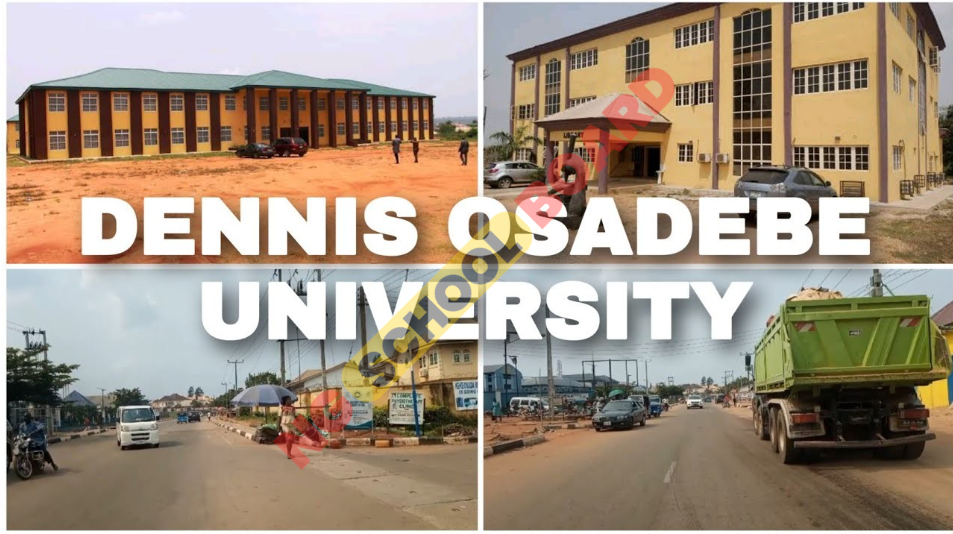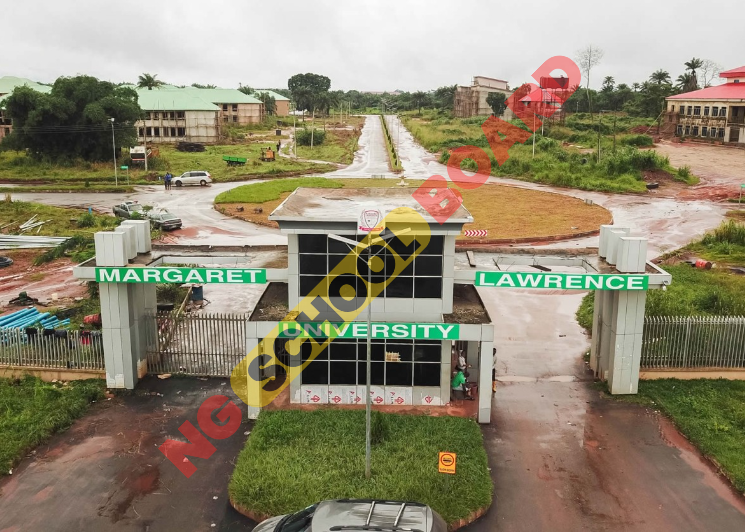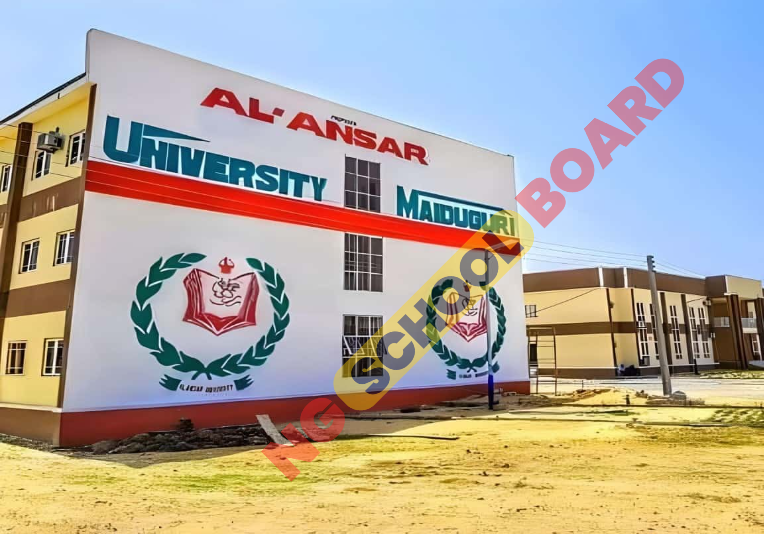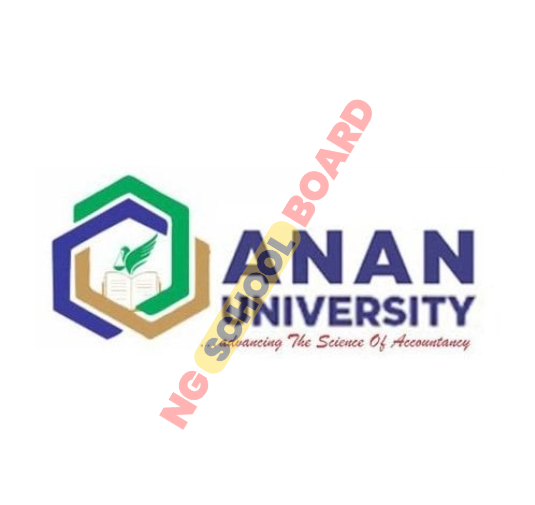An Overview of Courses at Dennis Osadebe University
Dennis Osadebe University (DOU), located in Asaba, Delta State, is one of the leading state universities in Nigeria. Established in 2018, DOU has quickly grown its academic offerings across diverse fields. The university currently has seven faculties providing a wide range of undergraduate and postgraduate programs.

ALSO SEE:
Dennis Osadebe University School Fees
DUST Portal: Admission | Student | Screening
DOU Cut Off Mark For All Courses
DOU Aggregate Score for All Courses
University of Delta Courses Offered
Dennis Osadebe University Courses Offered
| Faculty | Courses |
|---|---|
| Faculty of Agriculture | – B.Sc. Agricultural Extension and Rural Development – B.Sc. Agricultural Economics and Agribusiness – B.Sc. Animal Science and Production – B.Sc. Crop Science and Management – B.Sc. Soil and Land Resource Management – B.Sc. Fisheries and Aquaculture – B.Sc. Home Science |
| Faculty of Arts | – B.A. Creative Arts (with options in Theatre Arts and Visual Arts) – B.A. English and Literary Studies – B.A. History and International Studies – B.A. Mass Communication – B.A. Philosophy – B.A. Religion and Cultural Studies |
| Faculty of Computing | – B.Sc. Computer Science – B.Sc. Cyber Security |
| Faculty of Environmental Management and Social Sciences | – B.Sc. Criminology and Security Studies – B.Sc. Environmental Management and Toxicology – B.Sc. Political Science – B.Sc. Psychology – B.Sc. Social Work |
| Faculty of Management Sciences | – B.Sc. Accounting – B.Sc. Banking and Finance – B.Sc. Business Management – B.Sc. Entrepreneurship – B.Sc. Hospitality and Tourism Studies – B.Sc. Marketing |
| Faculty of Science | – B.Sc. Biology – B.Sc. Chemistry – B.Sc. Geology – B.Sc. Industrial Chemistry – B.Sc. Mathematics – B.Sc. Microbiology – B.Sc. Physics – B.Sc. Plant Science and Biotechnology – B.Sc. Statistics |
Faculty of Agriculture
With over 1500 students, the Faculty of Agriculture aims to drive agricultural development and food security through its programs across six departments. Graduates are equipped for diverse roles along agricultural value chains.
Agricultural Extension and Rural Development
This program focuses on promoting technology adoption, providing advisory services, and designing community initiatives among rural populations. Courses cover extension program development, community mobilization, adult education methods, rural sociology, and communication. Graduates work as extension agents, community outreach coordinators, and rural development officers.
Agricultural Economics and Agribusiness
Students learn to apply economic principles to agricultural production, marketing, finance, and policy. Key courses are farm management, agricultural marketing, agribusiness management, agricultural finance, food economics, and global food trade. Graduates are employed in agribusiness firms, commodity trading, farm credit institutions, and policy.
Animal Science and Production
The curriculum covers animal genetics, nutrition, housing, disease prevention, processing, and biosecurity measures related to cattle, poultry, pigs, and small ruminants. Key courses are animal breeding, livestock production, monogastric nutrition, dairy science, poultry science, and meat technology. Graduates work in livestock production, animal feed, meat processing, and related industries.
Crop Science and Management
This program covers courses in plant breeding, seed technology, weed science, crop physiology, soil fertility, post-harvest technology, and sustainable agriculture. Graduates work as agronomists, crop cultivators, seed technologists, produce inspectors, research assistants, and lecturers.
Soil and Land Resource Management
Students take courses on soil chemistry, soil fertility management, conservation, land-use planning, soil-water-plant relationships, and irrigation systems. Graduates work as soil scientists, environmental analysts, conservation specialists, water management consultants, and agriculture extension agents.
Fisheries and Aquaculture
The program focuses on sustainable aquaculture, aquatic ecosystem conservation, hatchery operations, post-harvest technology, fish processing, and quality analysis. Graduates find roles as fish farmers, aquaculture technicians, fish inspectors, aquaculture consultants, and lecturers.
Home Science
Students take courses in foods and nutrition, meal planning, consumer education, child development, family resource management, interior decoration, and textiles. Graduates work as nutritionists, dieticians, consumer advocates, family life educators, and home science teachers.
Faculty of Arts
The Faculty of Arts has over 2000 students pursuing bachelor’s degrees across five departments. Programs focus on building communication skills, creative expression, cultural appreciation and ethics.
Creative Arts
Students can specialize either in Theatre Arts or Visual Arts. The program covers acting, directing, production, playwriting, stagecraft, music, dance, painting, sculpture, graphics, textiles, photography, and more. Graduates work as performing artists, painters, sculptors, photographers, art directors, and lecturers.
English and Literary Studies
This program focuses on English language proficiency, linguistics, literary analysis, creative writing, and communication. Courses cover English structure and usage, morphology, syntax, phonology, prose, poetry, drama, novel analysis, and technical writing. Graduates work in education, publishing, writing, editing, public relations, and media.
History and International Studies
Students learn historiography, pre-colonial and colonial African history, economic history, foreign policy analysis, conflict resolution, international law, and diplomacy. Graduates are employed as historians, diplomats, policy analysts, international civil servants, archivists, and researchers.
Mass Communication
The curriculum covers print, broadcast, online and social media, public relations, advertising, and mass media theories. Key courses are news writing and reporting, photojournalism, broadcast media, PR principles, advertising concepts, and media laws and ethics. Graduates build careers in journalism, broadcasting, public relations, advertising, and digital media.
Philosophy
Students take courses in logic, ethics, social and political philosophy, and the history of philosophical thought from ancient to modern periods. Graduates work as ethicists, social critics, policy analysts, consultants, researchers, and academics.
Religion and Cultural Studies
This interdisciplinary program analyzes the role of religion and culture in society and history. Students take courses in comparative religion, cultural anthropology, African belief systems, sociology of religion, cultural resource management, and tourism studies. Graduates find roles in cultural tourism, museum management, religious organizations, and NGOs.
Faculty of Computing
With over 1000 students, the Faculty of Computing focuses on producing IT professionals ready for the digital economy. Students get hands-on training in the latest tools and technologies.
Computer Science
The curriculum covers software engineering, programming, algorithms, data structures, databases, operating systems, networks, cloud computing, and artificial intelligence. Key courses are advanced programming, web technologies, mobile computing, cybersecurity, machine learning, and final year project. Graduates build careers as software developers, database administrators, systems analysts, and IT consultants.
Cyber Security
This program focuses on digital forensics, applied cryptography, network security, ethical hacking, vulnerability assessment, cybercrime investigation, and security risk management. Graduates work as information security analysts, forensic investigators, penetration testers, cyber police, and security consultants.
Faculty of Environmental Management and Social Sciences
This faculty has over 1500 students pursuing multidisciplinary programs across its four departments. Graduates develop solutions for sustainable development, environmental conservation and social progress.
Criminology and Security Studies
Students take courses on criminal psychology, crime analysis, forensics, law enforcement administration, emergency response systems, cybercrime, and societal security challenges. Graduates work in law enforcement, criminal justice, private security, risk management, and homeland security agencies.
Environmental Management and Toxicology
The curriculum covers environmental systems analysis, pollution control, waste management, water quality, environmental toxicology, ecosystems conservation, and sustainability principles. Graduates work as environmental scientists, analysts, consultants, and sustainability officers.
Political Science
This program focuses on political theories, public policy, conflict resolution, international relations, comparative politics, and administrative systems. Courses cover political thought, public administration, foreign policy analysis, African politics, research methods, and public policy. Graduates find roles in public service, policy research, political advocacy, international organizations, and teaching.
Psychology
Students take theoretical and applied courses in developmental psychology, social psychology, cognitive psychology, industrial psychology, psychometrics, and counseling. Graduates work as counselors, organizational psychologists, mental health workers, special educators, and academics.
Social Work
The curriculum covers social work theories, social policy, community practice, counseling skills, developmental social work, gender and development, and social research methods. Graduates find employment in social services, NGOs, government agencies, shelters, and community-based organizations.
Faculty of Management Sciences
This faculty has over 2500 business students across its six departments. Programs combine conceptual strength with practical application to build business leadership skills.
Accounting
Students take courses in financial accounting, management accounting, taxation, auditing, financial reporting, corporate governance, accounting theory, and information systems. Graduates work as public accountants, internal auditors, tax consultants, and finance professionals.
Banking and Finance
The curriculum covers financial institutions, corporate finance, investment analysis, financial markets, international finance, portfolio management, risk management, and fintech. Graduates are employed in commercial banking, investment banking, insurance, stock trading, regulatory agencies, and fintech.
Business Management
This broad-based program provides foundation knowledge in functions like marketing, human resources, operations, economics, analytics, and accounting. Students also take courses in ethics, entrepreneurship and international business. Graduates are equipped for diverse management roles across industries.
Entrepreneurship
Students learn how to conceive, launch, manage, and scale new ventures. Courses cover opportunity scanning, business planning, small business management, social entrepreneurship, financing, innovation management, and growth strategies. Graduates work as business owners, intrapreneurs in companies, or for entrepreneurial support organizations.
Hospitality and Tourism Studies
This program focuses on hospitality operations, travel and tourism planning, destination marketing, eco-tourism, event management, customer service, and food safety. Graduates find roles in hotels, restaurants, tour operator firms, convention centers, airlines, and tourism bureaus.
Marketing
The curriculum covers buyer behavior, marketing communication, sales management, digital marketing, services marketing, brand management, marketing analytics, and strategic planning. Graduates build careers in consumer marketing, media, advertising, marketing research agencies, and corporate sales teams.
Faculty of Science
With over 2000 students, the Faculty of Science provides strong foundations across eight departments in both physical and life sciences. Graduates have the competencies to work in diverse STEM fields and research.
Biology
This program provides a broad coverage of botany, zoology, microbiology, biochemistry,
ecology, genetics, cell biology, physiology, and molecular biology. Key courses are general biology, biochemistry, microbiology, immunology, evolutionary biology, and biostatistics. Graduates find roles in healthcare, research, biotechnology, teaching, science writing, and environmental management.
Chemistry
Students get rigorous lab training in inorganic, organic, physical, analytical chemistry, and spectroscopic techniques. Additional courses cover nanoscience, chemical engineering, petroleum chemistry, and agrochemicals. Graduates work in manufacturing, oil/gas, pharma, quality control, research, and consulting firms.
Geology
The curriculum includes mineralogy, petrology, structural geology, sedimentology, engineering geology, hydrogeology, geochemistry, and geophysics. Students take courses in exploration surveys, economic geology, petroleum geology, and environmental geotechnology. Graduates work with mining, construction, environmental, oil/gas companies, and geotechnical consultancies.
Industrial Chemistry
This program focuses on applied chemistry tailored for manufacturing, processing, and production environments. Key courses are industrial chemical processes, product development, plant design, corrosion management, occupational safety, and quality control. Graduates are employed in chemical, food, oil, consumer goods, plastic, paint, and pharmaceutical industries.
Mathematics
Students take courses in advanced calculus, linear algebra, complex analysis, abstract algebra, number theory, geometry, mathematical modeling, and actuarial science. Graduates pursue careers in science, technology, academics, defense, telecom, finance, insurance, and consulting.
Microbiology
The curriculum covers virology, pathogenic microbiology, molecular genetics, immunology, epidemiology, food microbiology, industrial microbiology, and biotechnology methods. Graduates work in fields like public health, biopharma, clinical diagnosis, academics, food/beverage quality control, and research.
Physics
Students take theoretical and lab courses covering mechanics, electromagnetism, optics, thermodynamics, astrophysics, electronics, quantum mechanics, and nuclear physics. Graduates find employment in research, engineering, technology, finance, education, meteorology, and geoscience.
Plant Science and Biotechnology
This program focuses on plant biotechnology applications for improved agriculture, horticulture, and forestry. Key courses are plant tissue culture, genetic engineering, marker-assisted breeding, biopesticides, biofertilizers, and plant genome analysis. Graduates work as plant breeders, crop cultivators, lab technicians, researchers, educators, and biotech startup founders.
Statistics
Students learn both theoretical statistics and applications in data analytics. The curriculum covers probability, statistical inference, time series analysis, machine learning models, actuarial science, and statistical programming. Graduates find roles as data analysts, actuaries, risk modelers, researchers, and statisticians across domains.
Conclusion
Dennis Osadebe University has expanded rapidly within a short span to provide a diverse slate of academic programs across fields like agriculture, management, social sciences, IT, and the humanities. Along with state-of-the-art infrastructure and research facilities, the university strives to provide quality education and equip graduates for excellence. As the university continues to grow, it is poised to become one of the leading centers of teaching and research excellence in the country. READ MORE HERE.
Frequently Asked Questions
What are the admission requirements for undergraduate programs at DOU?
The minimum entry requirement for bachelor’s degrees is 5 credits (including English and Mathematics) in WAEC/NECO. Some programs also require credit passes in specified subjects relevant to the course.
What postgraduate programs does the university offer?
DOU offers several master’s and PhD programs across its faculties. Popular postgraduate offerings are MSc Computer Science, MBA, MSc Environmental Management, MSc Biology, PhD English, PhD Political Science and more.
Does DOU have an online or distance learning platform?
As of now, DOU does not offer full degree programs online. However, itplans to establish centers for distance and continuing education programs in the future, as well as virtual learning resources to supplement classroom teaching.
What facilities and amenities are available on campus?
DOU has well-equipped lecture halls, labs, offices, libraries, sports complex, health centers, cafeterias, internship and careers center, bookshops, accommodation, places of worship, banks, and Wi-Fi connectivity.
What types of financial aid are available to students?
DOU provides scholarships, bursaries and fee concessions for deserving students based on merit, sports excellence and dire financial need. Students can also access education loans from partner banks.
How can international students apply for admission?
International students can directly apply online and submit scanned copies of academic transcripts, passport, and required fees. They also need to provide two reference letters and statement of purpose.
Does DOU have exchange programs or partnerships with foreign universities?
Yes, DOU has academic and research collaborations with universities in US, UK, France, South Africa, Germany and other countries. These initiatives include student exchanges, faculty visits, collaborative research and more.
What career services does the university provide?
The Centers for Entrepreneurship and Career Development provide mentoring, interview training, internship opportunities and host job fairs. DOU also has dedicated business incubators to support graduate entrepreneurs.
How active is campus life at DOU?
DOU has over 30 student clubs and regularly hosts cultural festivals, sports competitions, conferences and community outreach activities. Students can join diverse interest groups related to arts, culture, social service and academics.

Hello, I’m Emeka by name, an article writer with a passion for words and storytelling. I have a knack for crafting engaging and informative content that captivates readers and delivers valuable insights. Whether it’s exploring the latest trends, sharing knowledge, or diving into creative narratives, I’m here to bring words to life. Join me on a journey through the world of ideas and stories as we explore the power of written expression.





